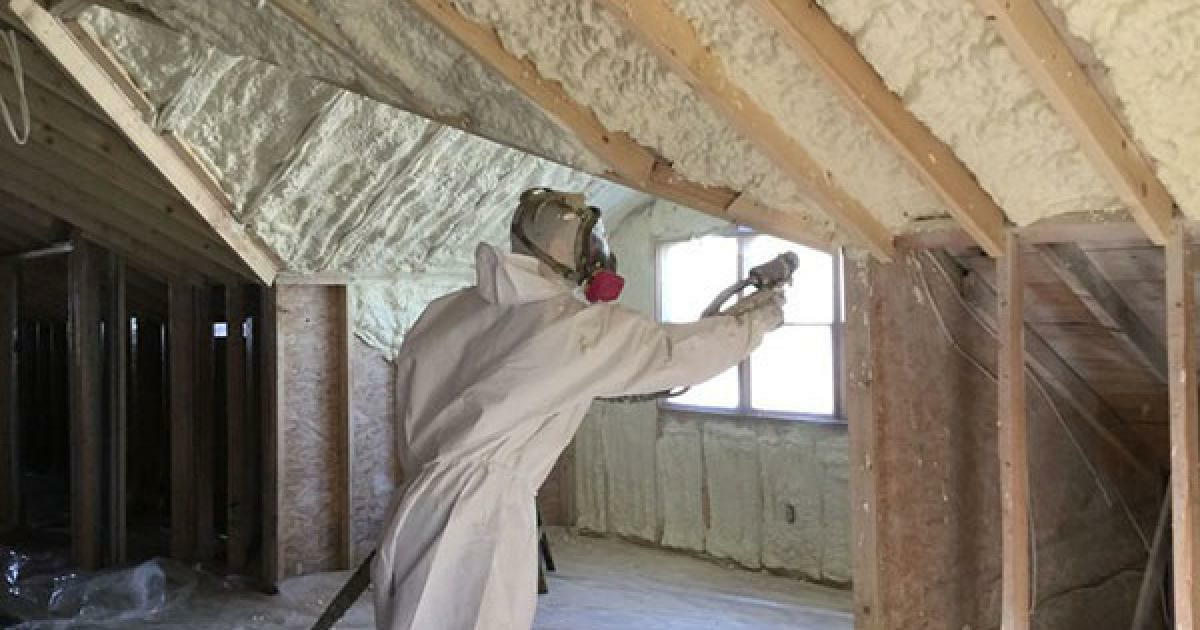Are you looking to enhance the efficiency of your agricultural buildings in Upstate New York? Closed-cell foam insulation installation might be the game-changer you've been seeking. This innovative solution offers numerous benefits for farmers and agricultural businesses, helping to create optimal conditions for crops, livestock, and equipment storage.
Why Choose Closed-Cell Foam Insulation for Agricultural Structures?
Upstate New York's agricultural sector faces unique challenges due to its varied climate. From scorching summers to frigid winters, maintaining consistent temperatures in farm buildings can be a constant struggle. That's where closed-cell foam insulation installation comes in.
Superior Thermal Performance
Closed-cell foam insulation boasts an impressive R-value per inch, far surpassing traditional insulation materials. What does this mean for your farm? It translates to:
Better heat retention in winter
Improved cool air retention in summer
A more stable environment for livestock and crops
Energy Efficiency That Pays Off
By reducing thermal transfer through building walls and roofs, closed-cell foam insulation can lead to significant energy savings. How does this benefit your agricultural operation?
Less energy required for heating and cooling systems
Lower operational costs
Increased sustainability of your farming practices
Moisture: The Silent Enemy
In agricultural settings, moisture control is crucial. Unlike other insulation types, closed-cell foam is impervious to moisture. This characteristic offers several advantages:
Prevents condensation
Inhibits mold growth
Protects against structural damage caused by water infiltration
These benefits are especially vital in high-humidity environments like greenhouses or storage facilities where precise climate control is essential.
The Air-Sealing Advantage
One of the standout features of closed-cell foam insulation installation is its ability to create an air-tight seal. Why is this important for your agricultural structures?
Minimizes drafts
Prevents unwanted air infiltration
Contributes to a more consistent and comfortable environment
This air-sealing property is particularly beneficial in buildings housing sensitive crops or livestock that require stable atmospheric conditions.
Durability for the Long Haul
When investing in insulation for your agricultural buildings, longevity is key. Closed-cell foam insulation installation stands out in this regard. Unlike traditional materials that may deteriorate over time, closed-cell foam maintains its insulating properties for decades. This durability makes it a smart, long-term investment for your farm infrastructure.
Improving Air Quality in Agricultural Spaces
Did you know that insulation can impact air quality? Closed-cell foam acts as a barrier against:
Allergens
Dust
External pollutants
This contributes to a healthier environment for your livestock, crops, and farm workers. It's an often-overlooked benefit that can make a significant difference in the overall quality of your agricultural operations.
Where Can You Apply Closed-Cell Foam Insulation?
The versatility of closed-cell foam insulation makes it suitable for various agricultural structures. Some ideal applications include:
Barns and Stables
Greenhouses and High Tunnels
Post-Harvest Storage Facilities
Poultry Houses
Cold Storage Units
Equipment Sheds
Each of these structures can benefit from the unique properties of closed-cell foam insulation, helping to create optimal conditions for their specific purposes.
The Installation Process: What to Expect
Curious about how closed-cell foam insulation is installed in agricultural buildings? Here's a brief overview of the process:
Preparation: The installation team will prepare the area, ensuring all surfaces are clean and ready for application.
Application: Using specialized equipment, technicians spray the foam onto walls, ceilings, or other surfaces.
Expansion: The foam expands rapidly, filling gaps and creating a seamless barrier.
Curing: The foam cures quickly, usually within a day, allowing for minimal disruption to your agricultural operations.
Inspection: A final inspection ensures the insulation meets all quality and safety standards.
Frequently Asked Questions About Closed-Cell Foam Insulation for Agricultural Structures
Is closed-cell foam insulation safe for use around livestock?
Yes, once fully cured, closed-cell foam insulation is inert and non-toxic. It's safe for use in barns, stables, and other livestock housing structures.
How long does closed-cell foam insulation last?
When properly installed, closed-cell foam insulation can last for several decades, often outlasting the lifespan of the building itself.
Can closed-cell foam insulation help with pest control in agricultural buildings?
While not a pest control solution itself, the air-tight seal created by closed-cell foam can help prevent insects and small rodents from entering the building through gaps and cracks.
Is closed-cell foam insulation suitable for cold storage facilities?
Absolutely! Its excellent thermal properties and moisture resistance make it ideal for maintaining consistent temperatures in cold storage units.
How does closed-cell foam insulation compare to traditional fiberglass insulation for agricultural use?
Closed-cell foam generally offers superior insulation, air-sealing, and moisture resistance compared to fiberglass. While it may have a higher upfront cost, its long-term benefits often make it a more cost-effective choice for agricultural buildings.
Conclusion: Investing in the Future of Your Farm
Closed-cell foam insulation installation represents a significant step forward in agricultural building efficiency. By creating more stable environments, reducing energy costs, and offering long-lasting performance, this insulation solution can help Upstate New York farmers optimize their operations and prepare for the future.
As you consider ways to improve your agricultural structures, remember the many benefits that spray foam insulation can offer. From barns to greenhouses, this versatile solution can help create the ideal conditions for your farming success.
Ready to explore how closed-cell foam insulation installation can benefit your agricultural buildings? Consider reaching out to professional insulation services like Ideal Spray Foam NY. Their expertise in closed-cell foam insulation installation can help you make the most of this innovative technology for your farm.
Phone: (716) 471-9706
Email: [email protected]

